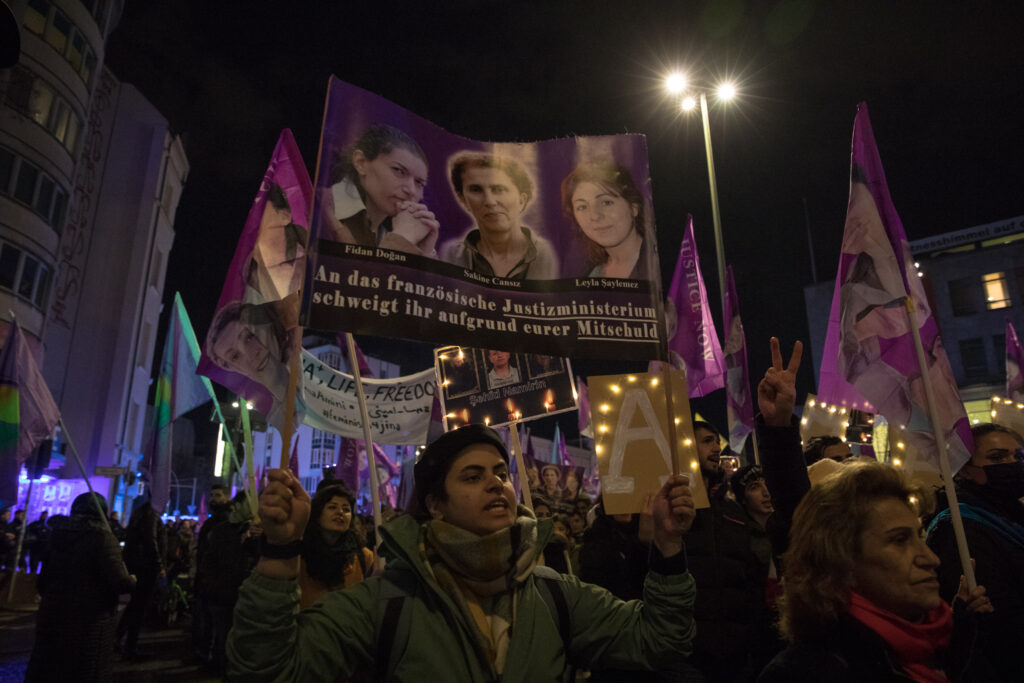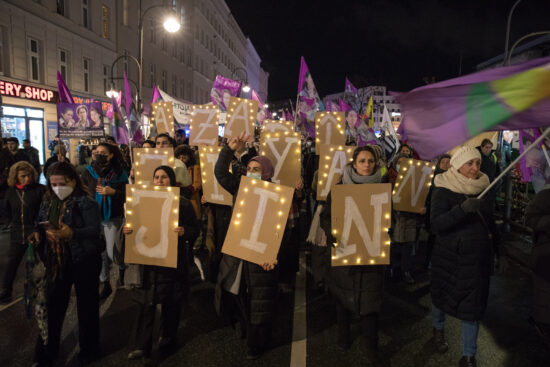On January 6th, people gathered in Berlin to protest against the Turkish government’s treatment of the Kurdish people. The demonstration was held in response to the recent shooting in Paris, in which three Kurdish activists were killed, and three others were injured.
The protesters, many of whom were Kurdish, held placards and banners calling for an end to the persecution and discrimination faced by Kurds in Turkey. They also called on the international community to recognize the Kurdish people’s rights and stand in solidarity with them.
The Turkish government has a long history of denying the rights and existence of the Kurdish people within its borders. This has included denying them the right to education in their language and violently suppressing uprisings and protests. In addition, the Kurdish language and culture have been systematically suppressed, with Turkish authorities going so far as to change the names of Kurdish cities and towns to Turkish ones.

In recent years, the situation of Kurds in Turkey has only worsened. The Turkish government has engaged in military operations against Kurdish militias in Syria, leading to the displacement of thousands of Kurds and the destruction of entire towns and villages. There have also been widespread arrests and persecution of Kurdish politicians and activists, with many imprisoned on trumped-up charges.
The Kurdish people have faced and continue to face significant persecution and discrimination at the hands of the Turkish government and society. The international community must stand in solidarity with the Kurds, call for an end to these abuses, and recognize their rights. The events of 2013, in which Sakine Cansız, Fidan Doğan, and Leyla Şaylemez were murdered, serve as a reminder of the dangers that Kurdish activists face and the need for justice for these and other crimes committed against the Kurdish people.
The shooting in Paris, believed to have been motivated by the Turkish government’s efforts to suppress Kurdish independence movements, has brought attention to the ongoing persecution and violence faced by Kurds in Turkey and elsewhere. The international community must stand in solidarity with the Kurdish people and demand an end to these attacks and the recognition of Kurdish rights.





